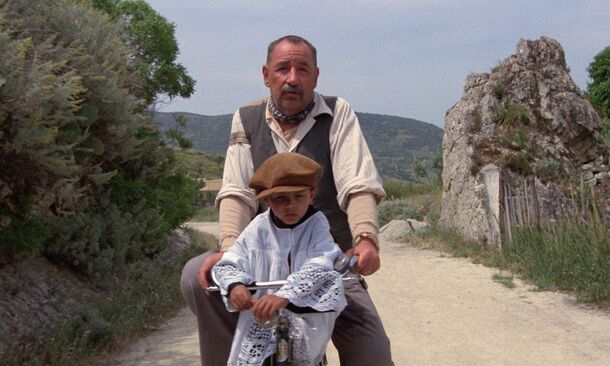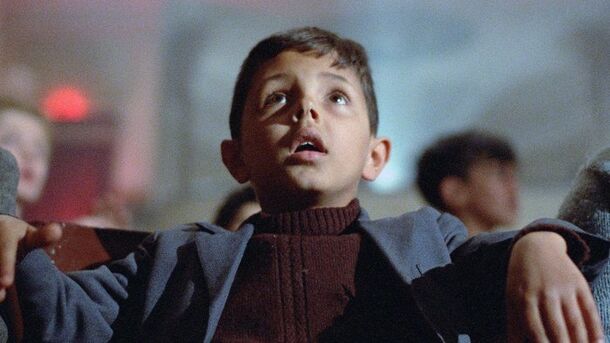Loved The Studio? Watch This 96%-Rated Movie About Movies You Probably Missed

Giuseppe Tornatore's Cinema Paradiso didn't become a worldwide hit like Federico Fellini's 8½, but to this day it remains the most touching love letter to cinema. Here's why every movie buff should see this masterpiece.
Hollywood loves to make movies about Hollywood – about actors, directors, failures, and flashes of fame. Apple TV+ recently released The Studio, a series about the chaotic life of the new head of a movie studio, a cinephile forced to produce a soulless blockbuster.
But the best project about the love of cinema was released 37 years ago – Cinema Paradiso by Giuseppe Tornatore, a true ode to this art and all those who have chosen to connect their lives to it.
What Is Cinema Paradiso About?
The movie tells the story of a Sicilian boy, Salvatore, in post-war Italy, where the movie screen became the epicenter of social life – in the theater, people make new acquaintances, laugh, cry and even start families.

The boy befriends the projectionist, asks to become his apprentice, and learns all the intricacies of this profession.
The Movie Was Supposed to Be Half an Hour Longer, but the Director Himself Decided to Cut It
Cinema Paradiso is a unique film, not only because of the touching and subtle way it shows the love of cinema, its unifying power and influence on people's lives, but also because of the fact that in cinemas a shortened version was released – and it was the initiative of the director himself.
Usually directors insist on increasing the running time, but the 155-minute version of Cinema Paradiso released in Italian cinemas was received coldly by viewers, and Tornatore himself took the initiative to make changes to the editing of the film.
A whole half hour was cut, but the movie became a real hit, won an Oscar and made all of Europe fall in love with it.
Cinema Paradiso's Memorable Soundtrack Was Written by Ennio Morricone
Although Ennio Morricone is best known for his scores for westerns and crime thrillers such as The Professional and The Bad, The Good and the Ugly, the great composer departed from his usual style for Cinema Paradiso.
Morricone relied primarily on clean piano fragments, in keeping with the overall sentimental mood of the movie. The music in Cinema Paradiso serves the story rather than being a separate dimension, as was the case in Morricone's early orchestrations.
However, the music fulfills its role brilliantly, creating a warm, gentle and lyrical landscape for the movie. The maestro wrote about a dozen soundtracks for Tornatore, but it is Cinema Paradiso that viewers remember most.
What Did Viewers & Critics Think of Cinema Paradiso?
Cinema Paradiso not only won the Oscar for Best Foreign Language Film, but also achieved something far more valuable – unconditional love from viewers.
The Guardian critic Peter Bradshaw wrote:
“If ever a movie came from the heart, it was Giuseppe Tornatore's nostalgic Cinema Paradiso, from 1988. [...] It's a real experience and a classic.”
-
On Rotten Tomatoes, Cinema Paradiso received 91% from critics and 96% from viewers.
-
On IMDb, the movie has a score of 8.5/10.
